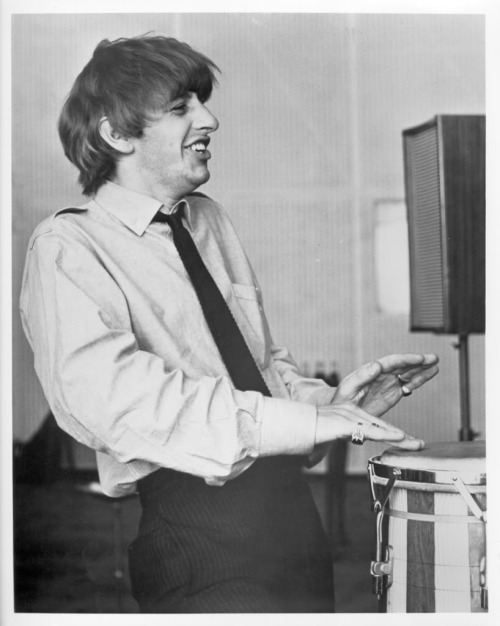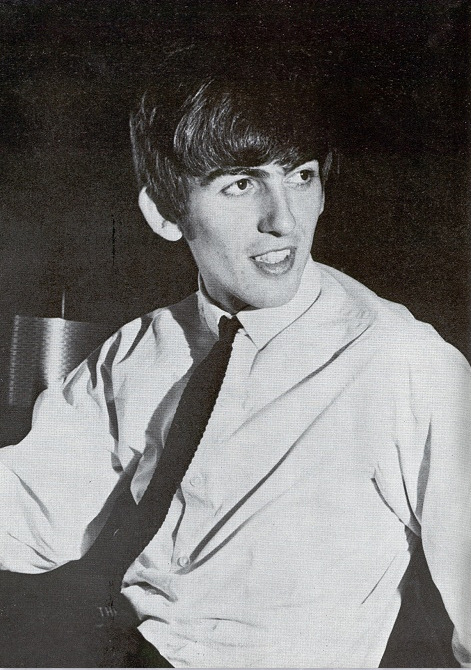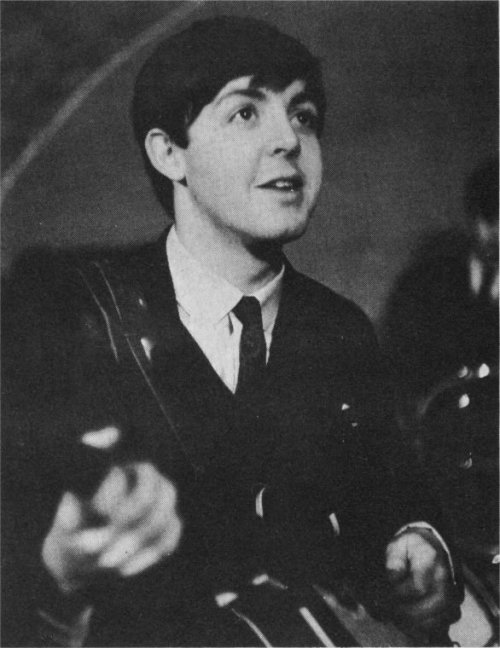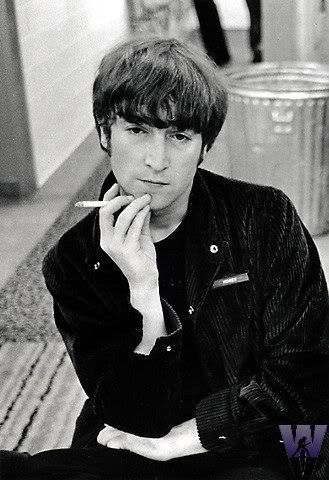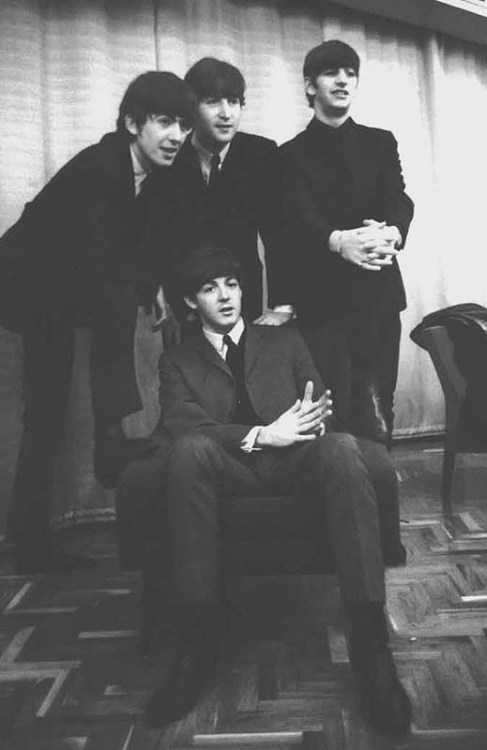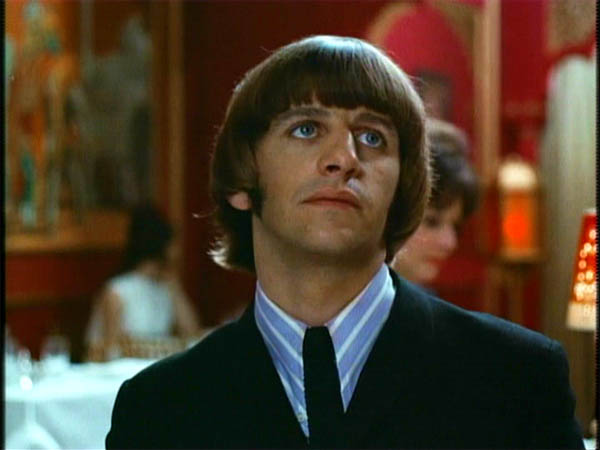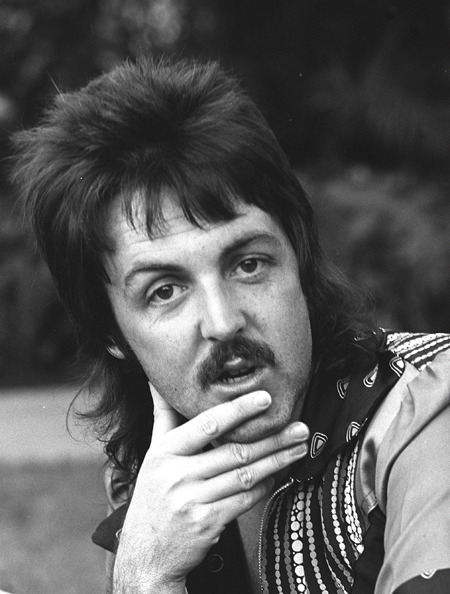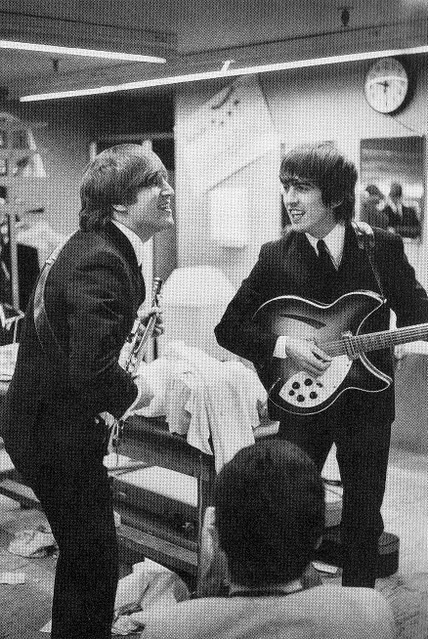Based on the "I Am the Walrus" personality quiz found in Adam and Roger Jaquette's book, Beatleology, I wrote the following imaginary interview with the Fab Four. The questions all revolve around love and relationships - which of the lads do you find yourself most frequently in agreement with? This may give you a clue as to who your Inner Beatle is.
What are you looking for in a lover?
Paul: "Well, I think I'm always wanting to find that special girl who supports me, you know? You sort of want to have that in a mate, I think, someone who's going to think you're just great."
John: "Seems like that would get a boring, wouldn't it, Paul? I don't want a lover who's going to just be a f*cking 'yes'-person, I want to be challenged. I want to be stretched and made to think outside the box, you know, and if I'm full of sh*t about something, I want to be told that."
George: "Well, I don't know, I just want to keep things easy and calm. I want to have love, sure, but I don't want a lot of drama, and such. There's no sense rocking the boat."
Ringo: "I suppose I just want to have some fun being in love. Love is fun. Sex is fun. That's what I'm looking for."
How do you feel about dating?
Ringo: "Like I said, it's fun. Going out is fun, meeting people is fun, and you never know ... you might get laid."
George: "No, sod that, it's a pain. All that trouble, having to meet someone new. It can be nerve-wracking sometimes. I like familiarity, you know, it'd be nice if we could just skip right to the fifth date or something."
Paul: "It's alright, you know, dating is a good chance to throw on the charm, sort of 'full-throttle'. When she looks at you in that special way, and you can tell she adores you, that's a nice feeling."
John: "I'm with George - it's a waste of time. I just want to know if this girl is my soul-mate, the one I've been looking for all my life, and then I want to spend all of my time with her and her alone. You don't need dating for that."
What does a long-term relationship look like for you?
John: "Well, we need each other very much, and it can be somewhat co-dependent - and that's not always bad. My friends will probably stop hearing from me for a while, because I just want to be with her all the time."
George: "It looks very predictable and routine, which is good, that's stability. I really don't like drama."
Ringo: "I'll commit to the relationship, sure, no problem. I don't want to spend too much time over-thinking it, though."
Paul: "I tend to be the leader, I suppose, certainly the 'driving force.' I always have a lot of ideas about places we should be going, and things we should be doing, and she goes along with my ideas. So that's great."
Alright. You've just gone through a breakup after a long-term relationship. How do you react?
George: "That hurts, there's no question. I need some time alone to think things over and reflect on what happened, maybe try to learn a few things for next time. I definitely would make a clean break, though - get rid of the letters and pictures and all that."
Paul: "Yeah, it definitely hurts, it's a real blow to the self-esteem, y'know, and it doesn't make sense - I mean, who wouldn't want to be around me? Why would you want to leave this? I'm with George, though, I'd have to make a pretty clean break eventually, after I'd gotten the bad feelings out of my system, probably with a song or something."
John: "Oh, it's a crushing blow, Paul's right. It just destroys you inside, you know? I would be out drinking or doing drugs to forget the pain, and probably I'd end up on her front doorstep after midnight, begging to be let back in. I would obsess about it a bit, probably, and have a hard time letting go."
Ringo: "If it's over, it's over, you know? It probably wasn't meant to be. It might take a bit to feel better about it, but there's no sense in throwing a pity party. I'd still keep the mementos, though, because those are still a good time - old pictures or knick-knacks or whatever. I'd want to remember the good times."
What is your favorite sexual position?
Paul: "On top, in control, of course."
John: "On the bottom - I'm a big advocate of equality, and I like her to have a bit of control there."
George: "Well, you two can have that, I'm not going to limit myself at all. I'll be on top, on bottom, on the side, whatever."
Ringo: "I'm probably handcuffed."
What's your idea of a good first date?
John: "Short and to the point. If she's the one I've been looking for, I'll know right away, and I wouldn't mind catching the midnight plane to Holland or France so we can get married right then and there."
Paul: "Oh, I think it should be very romantic. You know, I might sing her a song I've been working on, or read her some poetry I've written, and just be very open about how I feel. I think, if she's the one, it'll be pretty obvious in short order."
Ringo: "I think I'd like to go to the pub and just have a good time, have some laughs."
George: "I don't like dating, it can get uncomfortable. I mean, I'll try to genuine with her and be myself, but I'm not going to show her all the dimensions of my personality until I'm a little more comfortable with her."
What's your idea of a good marriage proposal?
Ringo: "It'll be a public thing, very social, you know. In the middle of a restaurant, or at a big party with all of our friends. Something big like that."
Paul: "I'll propose because I just can't stand being away from her any more, and ... I don't know, I'd have to think about it, really. I'd want it to be really romantic, probably after a moonlit stroll and a dozen roses or something."
John: "It's a big deal. I'd probably have to be drunk to get enough nerve up."
George: "I'm only going to propose after I've really thought about all aspects of the thing and how life will change. I have to be sure I really want this before I say it."
What is sex to you?
George: "It's a very spiritual thing, I think, very intense, the kind of soul-union it gives me with my partner. It's another way for me to express myself and my love for her."
John: "Oh yeah, it's very intimate, and it's an expression of love - but it's also crass, you know, it's a way to get physical release. Even the animals do it, you know."
Paul: "It's a way to strengthen our love, I think, and it's also very affirming for me, too. It's good for the ego, I think."
Ringo: "It's a fun activity, it feels good, it's nice to add that in with other things like having a few drinks or going out to the movies."
Would you ever cheat on your lover?
Paul: "Absolutely not. I don't want anyone to think of me as being that kind of person, you know."
George: "You know, I keep saying, I don't like a lot of drama, really. So, no, cheating is complicated and messy and not really worth the trouble. Keep it simple, be faithful."
John: "Well, that depends, really, doesn't it? I mean, if it's a good relationship I'm in, I believe in it, I'll be true, but if things are falling apart, then ... you know, anything goes."
Ringo: "I wouldn't want to get caught or hurt anybody, but it's also important to be happy, so I think if the opportunity presented itself and it seemed like a good time - and nobody would get hurt - then, yeah."
